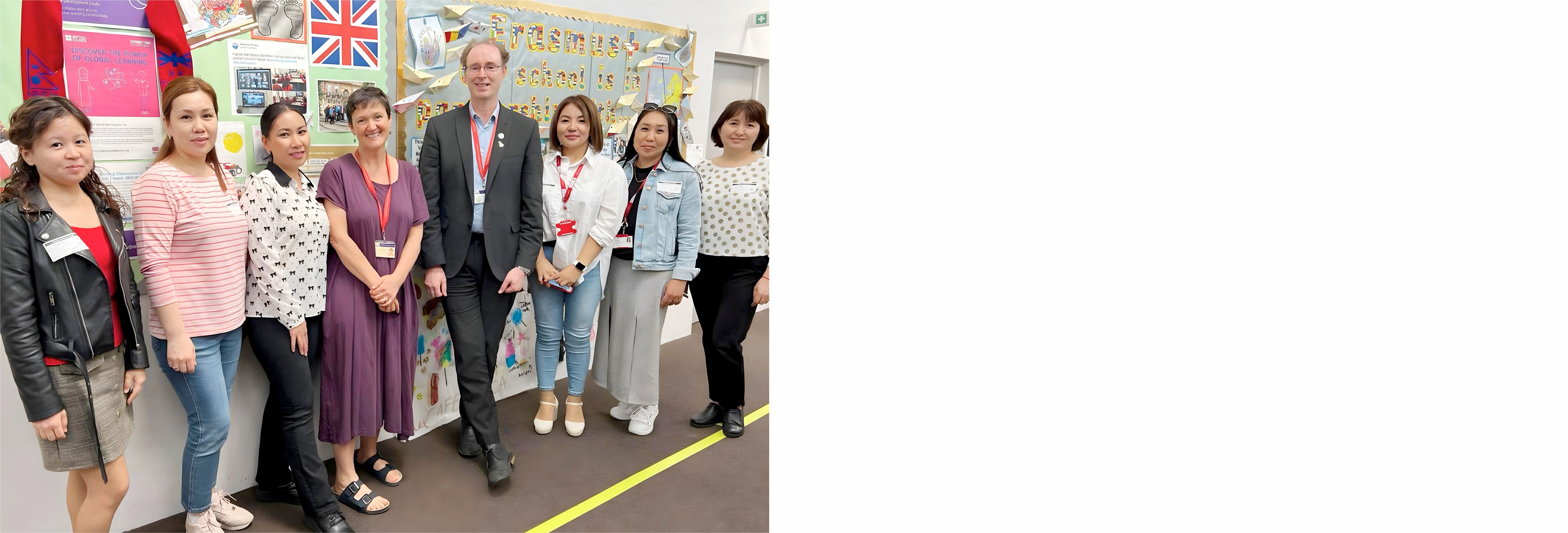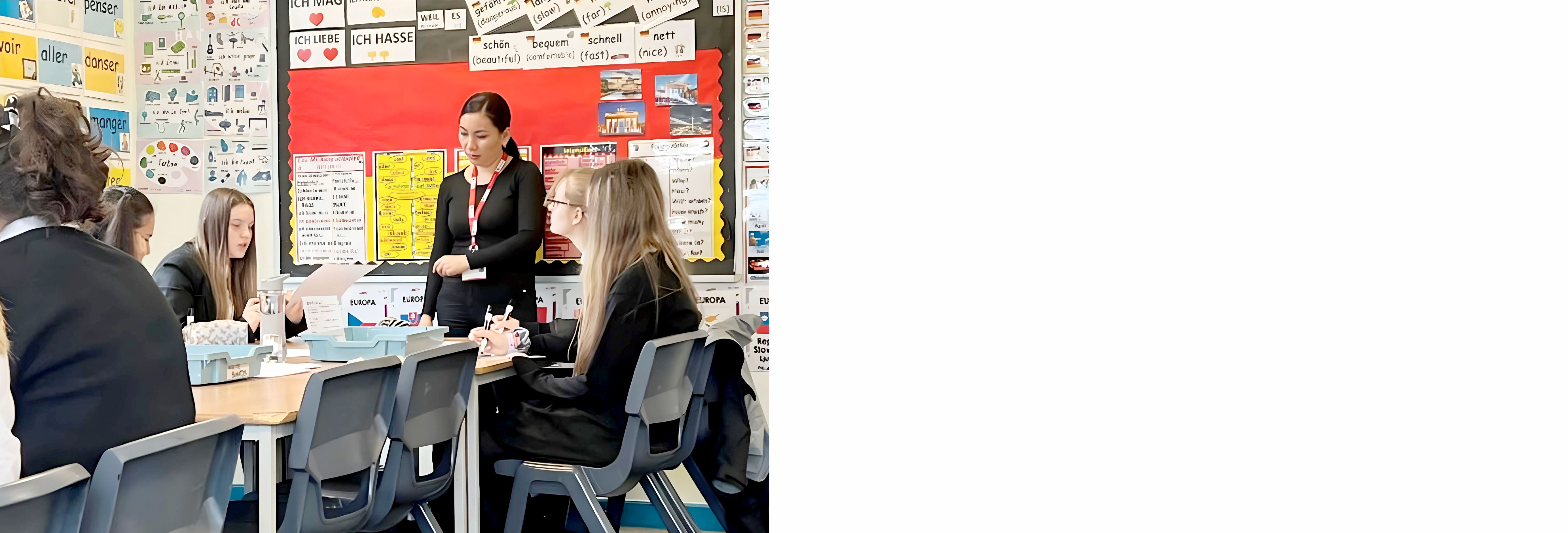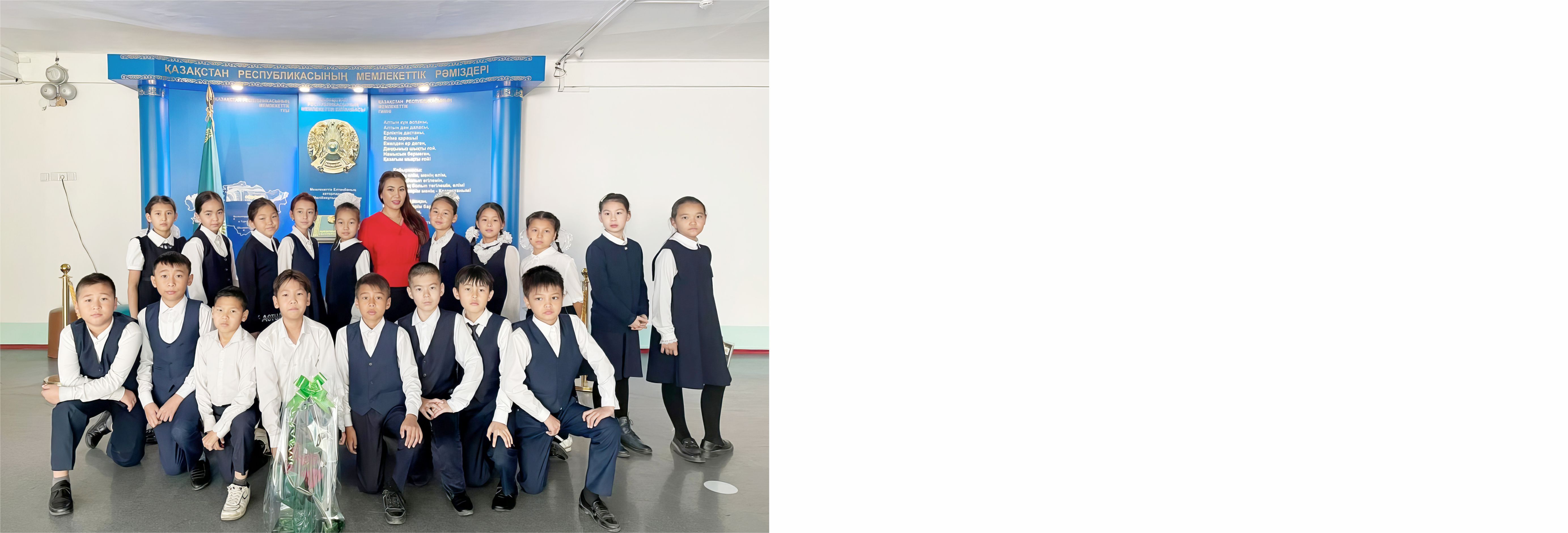Published:
From 2003 to 2024, Kalamkas Abenova devoted her career to Gymnasium No. 8 in Zhezkazgan, located in the Ulytau region, where she taught foreign languages to young Kazakhstanis for 21 years. However, starting from September 2024, due to family circumstances, she transitioned to the M. Shokay School-Gymnasium No. 51 in Astana. In her profession, Kalamkas Rakhymbekovna exemplifies unwavering dedication to her work and a deep passion for teaching. An internship at the University of Leicester, undertaken through the Bolashak program, provided her with a new impetus in her teaching career.
“One of the most important discoveries for me was the Lesson Study method. This research, which I now conduct in our school, helped me change my approach to group work among students. We are working to ensure that students can self-regulate, interact within groups, and independently assign roles. These skills are critically important in today’s realities, where students must be prepared for continuous self-development. Our work on Lesson Study was recently presented at the WALS international conference in Astana.”
“In addition, the internship in the UK gave me new approaches to teaching, which I actively implement in my practice. One of the main ones is the development of critical thinking in students through assignments that require analysis and solving complex problems. As a result, my lessons have become not just about language learning but also a training ground for their thinking and independence.”
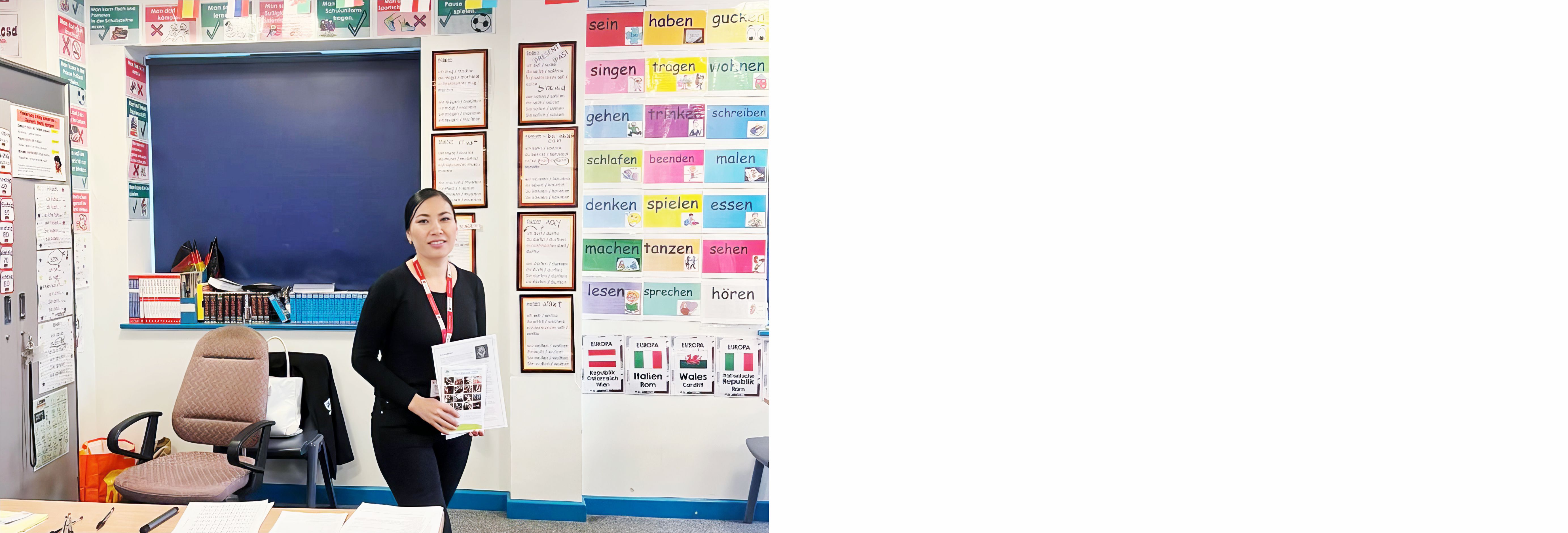
“I dreamed of studying abroad since childhood, and the Bolashak program gave me the chance to realize that dream. As an English teacher, I’ve always strived not just to share and pass on knowledge, but to enrich my experience through international practices. When the opportunity to undertake an internship abroad arose, I decided not to miss the chance. I submitted my documents and went through all the stages of the Bolashak selection process. Although I prepared thoroughly, there were moments of anxiety, but confidence in my vocation helped me overcome all difficulties.”
“Today, the mission of a teacher goes far beyond traditional education. It’s not just about imparting knowledge, but about nurturing a well-rounded individual. In the modern world, a teacher plays a key role in the following areas:
Thus, the primary mission of a teacher today is not just teaching but shaping conscious, responsible citizens who are ready to actively participate in society and influence its development.”
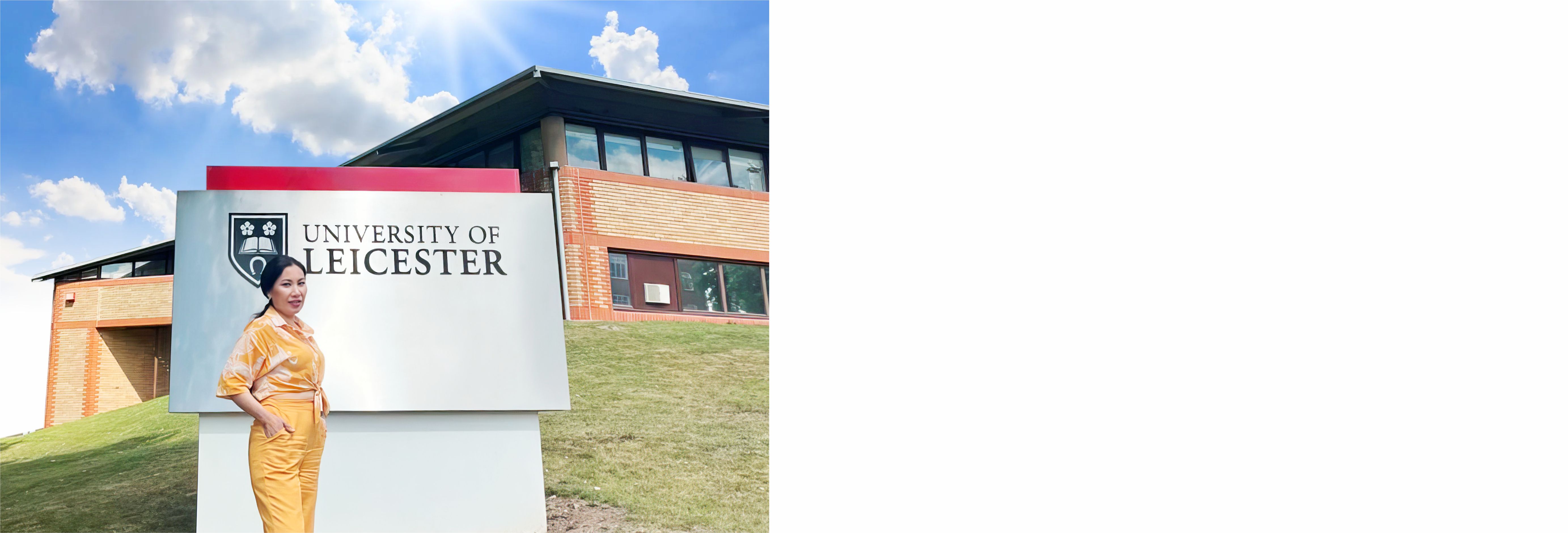
“My love for languages began with German, which I studied at a small village school until 9th grade. But even from an early age, I dreamed of learning English. In 1999, I found out that the Zhezkazgan Humanities College had opened a new English department. Without hesitation, I gathered my documents, passed the selection process, and was admitted on a scholarship. Deep down, I always wanted to study at Gymnasium No. 8 in Zhezkazgan because my sisters studied there. That school was renowned for its educational traditions and high standards. Although I didn’t study there, after graduating from college in 2003, I realized my dream by becoming an English teacher at the gymnasium. Since then, 21 years have passed, and every day I feel a deep connection to the gymnasium and my students. My teachers had a great influence on me, and to this day, I remember them with gratitude.”
“My students have won at republican, regional, and international Olympiads, and have become winners of science projects. Each of their successes is not only the result of their hard work but also of our collective efforts. I am especially proud that my students continue to grow as individuals and professionals.”
“A teacher doesn’t just teach subjects, they help shape a person’s character, instill moral principles, and teach critical thinking and creativity. We unlock the potential of each student and show them how they can apply their abilities for the good of society. In the future, my students will be able to bring innovations to various fields, whether it be science, ecology, or technology. For example, they are now developing new methodologies, improving processes in industries, or helping solve global environmental problems. But what is even more important, they will become active citizens who will bring positive changes to society. That is the greatest contribution of a teacher.”
“In the UK, the emphasis is on developing critical thinking, independence, and a creative approach. In Kazakhstan, although the system is based on state standards and subject knowledge, in recent years there has been a trend towards the introduction of European and Western methods. I believe that we can continue to develop our education system so that it combines traditional values with modern innovations.”
“I try to share modern methodologies and technologies with my colleagues by organizing seminars and master classes. The development of educators is key to success in education. The more teachers have access to new knowledge and tools, the better they can pass that knowledge on to students.”
“For me, Teacher’s Day is a special holiday that highlights the importance of our profession. It’s a time when we can express our gratitude to teachers for their contribution to the country’s future. Supporting teachers, whether morally or professionally, is extremely important. We, as educators, shape future generations, and our recognition is vital for motivation and inspiration.”
“I sincerely congratulate my dear colleagues on Teacher’s Day! You are that golden bridge over which our students cross into a bright future. Your efforts, kindness, and patience will forever remain in the hearts of those you teach. I wish you health, inspiration, and relentless pursuit of new heights! May every day be filled with the joy of helping children unlock their talents and dreams!”
